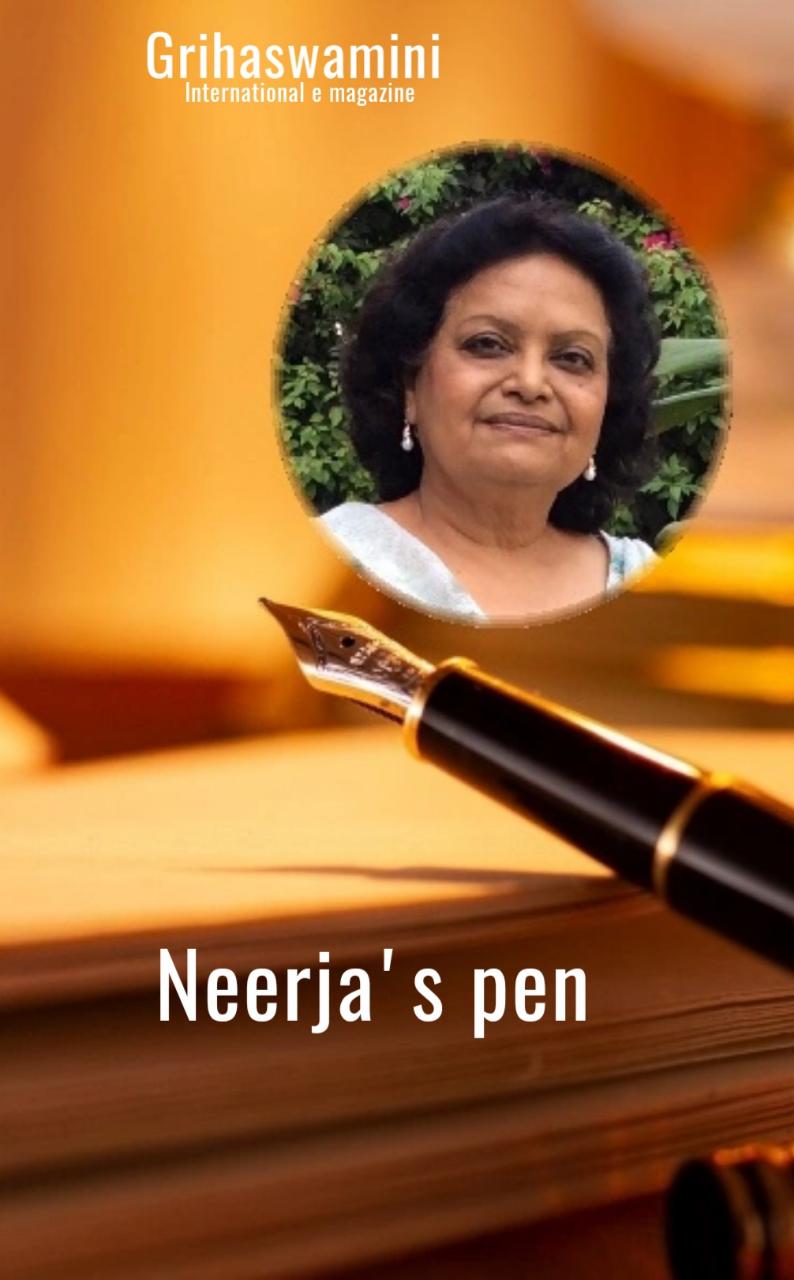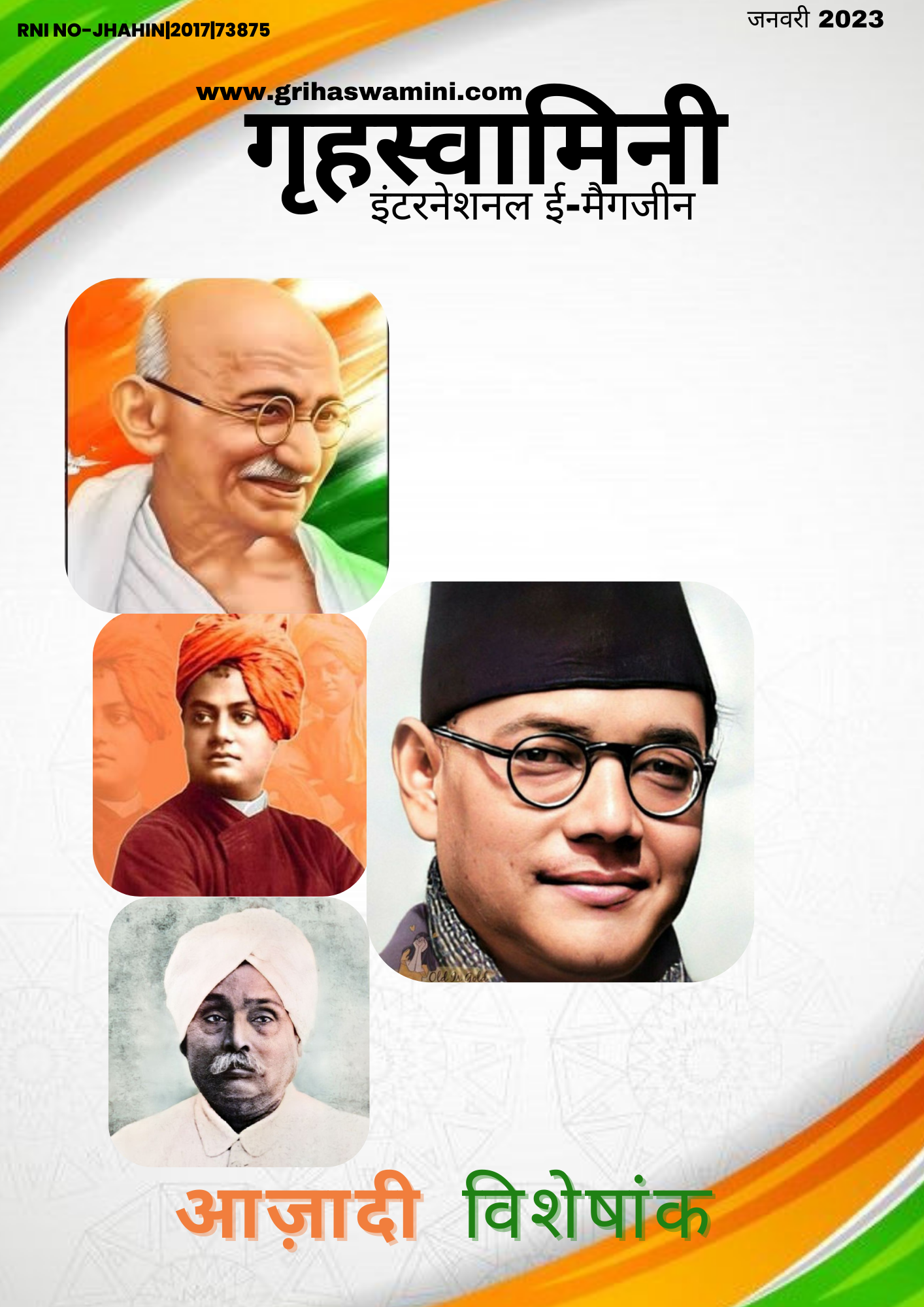An Unsolved Puzzle
(This story is inspired by real events but the characters are imaginary.)
“Please sit down Mrs Chaudhary”, the genial senior psychiatrist in the Ranchi Mental Hospital was inviting Latika Chaudhary – an inmate of the asylum – to come in and make herself comfortable. I found an elegant woman in her mid thirties slowly walking in. Freshly bathed and dressed in a floral printed silk saree, with neatly combed hair gathered in a loose bun at the nape of her neck and a serene smile on her face, Latika looked more like an upper middle class housewife than an inmate of a psychiatric institute. I was not yet twenty. A postgraduate student of psychology in the Lucknow university, I had gone with some selected students of my class to see, experience and understand what really happens in mental asylums. This was a part of our course in clinical psychology and happened more than four decades ago.

Psychology is a very interesting subject. Human mind – the pinnacle of evolution, as vast and mysterious as the universe – is a unique gift from God. Animals too have a mind and intelligence, but the human mind with its limitless capacity for abstract thinking and a discretionary intellect is beyond comparison. No wonder the human mind has fascinated and captivated poets, philosophers and scientists encouraging them to delve deep into its fathomless recesses and come up with unknown treasures.
For Emily Dickinson,
“The Brain – is wider than the Sky –
For – put them side by side –
The one the other will contain
With ease – and You – beside-
The Brain is deeper than the Sea-
For – hold them – Blue to Blue –
The one the other will absorb-
As Sponges – Buckets – do –
The Brain is just the weight of God –
For – Heft them – Pound for Pound –
And they will differ – if they do –
As a Syllable from Sound.”
Our scriptures, written more than 5000 years ago (we believe that our Vedas – origin of all knowledge and scriptures were present at the time of Creation itself and are eternal) talk about three ‘realities’: prabhasika, vyavaharika and paramarthika. These roughly compare to our three selves: the one we believe we are, the one we show to the world and the real ‘I’. Freud called it Id (basic base instincts), Ego (sense of identity and not pride) and SuperEgo (value system instilled by our traditions, culture and customs). There is such a vast gamut of thoughts and schools starting from early philosophers – our rishis several thousand years ago – to the 21st century psychologists, all trying to unravel the deep mysteries of the human psyche.
This very complex human mind, capable of extraordinary achievements, sometimes gets sick and then the whole world goes topsy turvy. Your greatest friend turns into your biggest enemy. This happens when the alignment between id, ego and superego breaks down. Your most precious asset – your mind – turns into a dangerous liability. What causes these illnesses, what are the symptoms and how these can be cured are the topics which have occupied some of the best scientific minds for centuries. I studied Clinical Psychology; about psychoses (like schizophrenia, paranoia, depressive mania etc) and its much milder form – neurosis. While studying these illnesses, especially neurosis, we all felt the symptoms within ourselves. A question troubled me; where is the threshold between the two and what precipitates a person’s crossing over to psychosis from neurosis?
It so happened, our post graduate course had a field trip to a Mental Institute. We visited one of the oldest and the most famous in Ranchi to see for ourselves the impact of these dreadful diseases and their treatment.
In the five day trip, two were spent in the travel to and from by train. We had three days in the Institute to see their infrastructure, meet the patients, doctors and the paramedical staff. That day was the last. During the previous two days we had met patients, who were very obviously and pathologically ill. They had practically lost all connection with reality and seemingly came from under privileged sections of society. We saw many strange cases displaying symptoms about which we had only read in our textbooks.

There was this schizophrenic woman who, completely unmindful of our presence in the room, kept on bowing and paying obeisance to some invisible person. When asked, she said mockingly, “can’t you see Vishnu bhagwan?” and got busy once again with her ‘namaskaars’ to Lord Vishnu. She was hallucinating and was compulsively, obsessively making the hand gestures devoid of any feeling of devotion. There were others like her with various degrees of paranoia, schizophrenia and other mental disorders. Some, even more serious cases, had to be kept isolated. Then there were heartbreaking pathetic cases, who had recovered but couldn’t go home because their relatives refused to take them back. What is it that makes human beings so cruel and insensitive to the suffering of not just another human being but even someone who is a close relative?
The room where electric shocks were administered had the look and vibes of a torture chamber. Anyone who has watched the movie, ‘One Flew Over The Cuckoo’s Nest’ – an all time classic-would immediately know what I am saying; gut wrenching pathos and spine chilling horror. We were told that these were given rarely and only when absolutely necessary. Hopefully, that was true.
The sprawling campus was neat and clean with lush green plants all around and blue hills at the distance. Colourful flowers were blooming in manicured gardens. Quite a pretty place. The inmates, with better mental condition, looked after most of the chores including gardening. The rest, with blank expressions, hardly seemed to notice this sheer magnificence around them. ‘Reality’ is only what your mind perceives. Rest is ‘illusion’.
On the third and the last day, most of my classmates had gone to see some other sections. I was interested in seeing the range of pathology – at what point neurosis turns into initial stages of psychosis; all my doubts about the threshold and precipitating factors? I had requested the doctors to show me some borderline cases and thus my meeting with Mrs. Latika was arranged.
I was unprepared for this sophisticated and soft spoken lady. In Fact, I patted my somewhat ruffled hair in place looking at her neatly turned out visage. Seeing my bewilderment, the doctor gave me a knowing smile and after a few pleasantries with Latika suddenly said that he happened to meet her husband the previous evening. Latika visibly looked happy and enquired about her husband. The doctor said all was well, he was remembering her etc but he (the husband) also said that Latika could not make a good salad.
Latika looked a little confused for a moment, then started to explain defensively about how good she was at cooking, especially at making salads etc. The doctor provoked her a little more and gradually Latika worked herself into a frenzy. She was enraged. Her eyes were spitting fire and hatred. She was screaming by now, “He is after that s**t Chanchal and tells lies to defame me. He has conspired to keep me here so that he can have fun with that woman.” At one point of time, she looked directly into my eyes – desperate and imploring, “don’t you believe any of these lies. My husband Chadra Kant Chawdhary is also a doctor. He has bought all of them with his money and friendship. All this is a diabolical conspiracy to lock me up here and leave him free to have fun with his keep.” She was increasingly becoming incoherent and was mouthing angry abuses.
I was distraught to see Latika completely disintegrate emotionally in barely ten to fifteen minutes. By now, Latika had reached a stage where a sedative had to be administered to calm her down. I felt miserable and guilty. I wanted the experiment to end at once. Latika, quietened down after the injection but while going out of the room gave me such a helpless, imploring look that it has stayed with me ever since. Mind you, it was forty years ago.
Was she telling the truth? If someone you trusted betrayed you like this, would you also not flare up at false accusations? But the speed and the intensity of emotional collapse was insane. Really? Was it? I convinced myself that Latika was indeed in need of the treatment and confinement at the asylum being on the thin edge separating neurosis from clinical psychosis. She could flare up any moment with any little provocation and be dangerous to herself and others around her.
About two decades later, I again went to Ranchi. This time as Secretary to the GOI in charge of the Health Ministry, to inaugurate a conference of eminent doctors and hospital administrators on the ‘Use of Technology in Health Care’. One of the speakers was one doctor C. K. Chaudhary. Suave, sophisticated, in his early sixties and obviously successful, he spoke with the confidence acquired by in-depth knowledge of his subject and years of experience. But, there was something disconcerting about him, which I could not place immediately. The conference was well managed and all the speakers were of a very high caliber.
The deliberations were over and we were proceeding downstairs for the high tea. I was scheduled to return to Delhi the same evening. As I was carefully negotiating the stairs avoiding the overcrowded lift, suddenly Latika’s memory popped up from a deep recess of my mind. Wasn’t Latika’s husband also a doctor?
Probably with a similar name?
I didn’t have to look for Dr. C.K. Chaudhary in the crowd. He himself came towards me with a plate of some snacks. ‘Ma’am! Please have something”, he was offering the plate to me. “Thank you so much! I will just have some coffee. “Sure!” he muttered some instructions and a steaming cup of coffee was on the way. Dr. Chauwdhary was obviously quite influential there. I was in two minds. Suppose if he is not the person? How to bring up the subject? It would be hugely embarrassing for me if he turned out to be someone else. How do I ask whether he had a wife in a mental asylum? The cup of coffee was about to be over and all of us would disperse in a few minutes probably never to meet ever again. I could not restrain myself any longer and shot an arrow in the dark; “How’s Mrs. Latika?” I asked.
Dr. Chawdhary’s face crumpled for an instant but he recovered super fast. “Oh! How do you know her? She unfortunately passed away five years ago in a mental asylum. She had serious health issues.” Meanwhile a woman joined us. “Ma’am! Meet my wife Chanchal.” Dr. Chanrda Kant Chaudhary was introducing me to an attractive and vivacious woman much younger than him.
Neerja Rajkumar
IAS (Retd.)
Former Chief Secretary,
Karnataka


